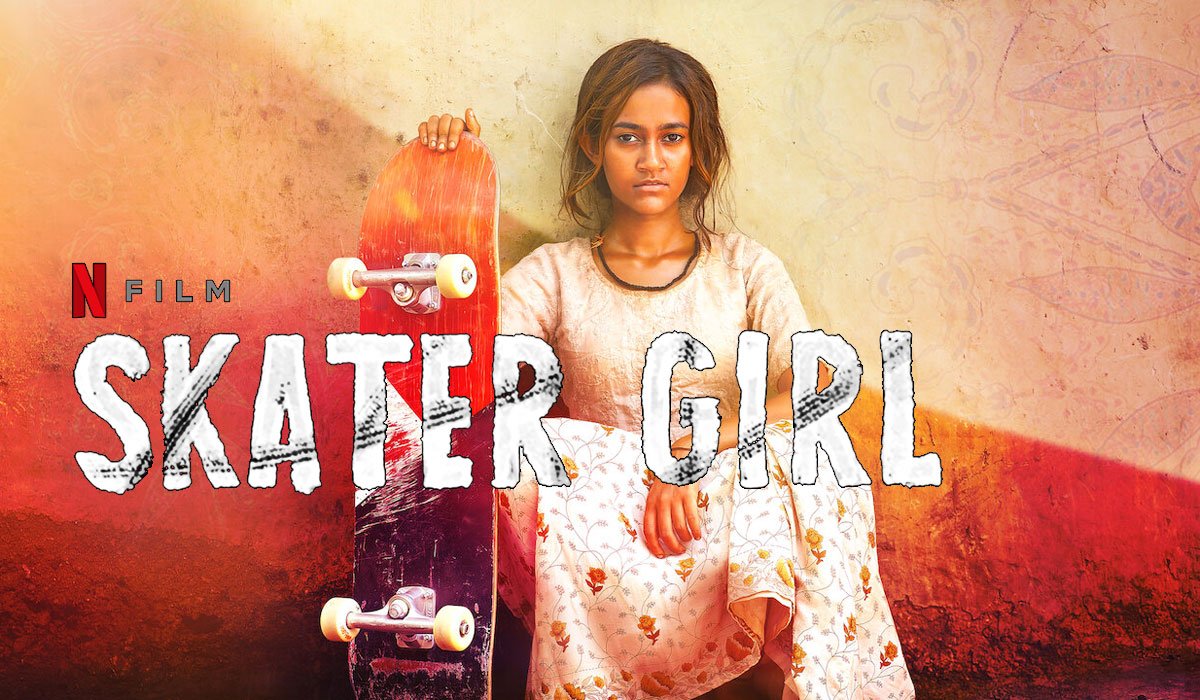When it comes to female themes in Indian movies, I believe you will not be too unfamiliar with such movies as “Dangal”, “Secret Superstar” and “Toilet-Ek Prem Katha”.
Although such commercial films still inevitably carry the routines and selling points of genre films.
However, its relatively complete story narrative, as well as the expansion of female subjects in Indian films, and some reflections on the living conditions of Indian women are the value of these films.
So these make the female subject matter in Indian movies a worthy area of attention.
Recently, there is also a movie “Skater Girl” about Indian women.
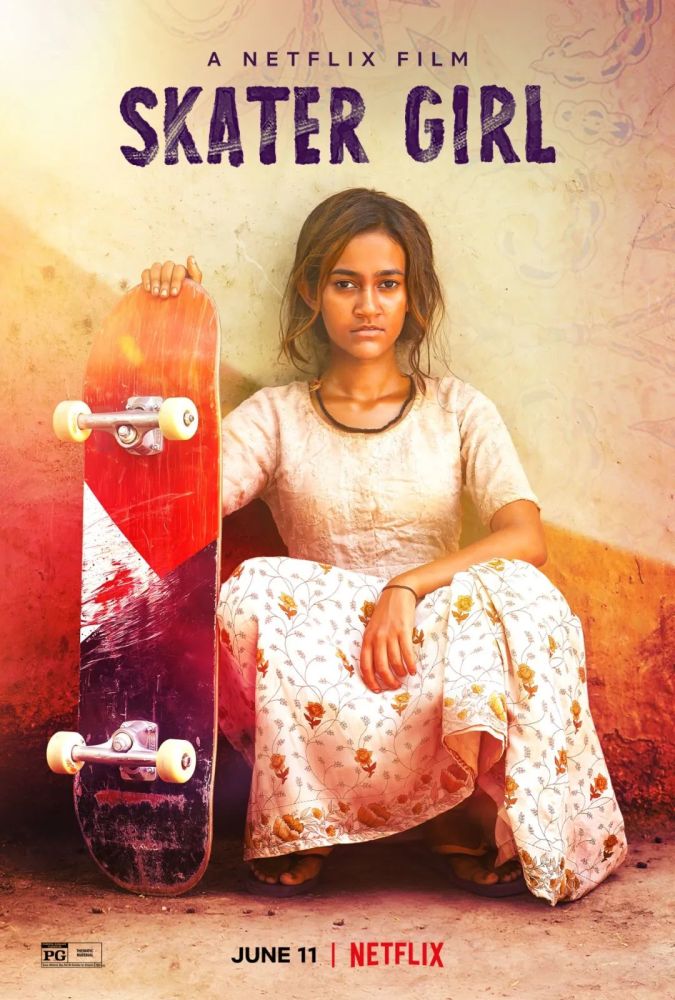
The proposition of “skateboard + girl”, and the similarities in the name and elements of “Learning to Skateboard in a Warzone”, which won the Oscar Award for best documentary short film, attracted attention to this film.
Although “Skater Girl” is defined as “sports + female” in the Indian context.
But it is not difficult to find or be wary that this film is actually produced by Netflix.
The country of production is “United States/India”, so it cannot be classified as an Indian film related to female subjects.
The reason why I want to share this film with you is not to say how good it is.
Rather, it unfolds the problem of “presented” in the Western perspective of Indian female subjects, which can bring us a thinking angle, or thinking about problems.

According to the definition of the film’s title, what “Skater Girl” wants to tell is that Prerna, an Indian girl who lives in the country, accidentally discovered that she loves skateboarding.
Then there is a story of constant struggle, compromise and persistence between chasing the dream of skateboarding and being refused to skateboard.
In terms of the main line that was intended to be presented, the type of “sports + women” defined in the film was originally very clear.
Under this main line, an Indian girl’s persistence, resistance and growth and changes towards dreams and love are presented. No matter the ending is dream realization and dream disillusionment, it can show the hero’s mental journey and self-salvation.
Around this main line, the repression and injustice faced by women in Indian society are then extended.
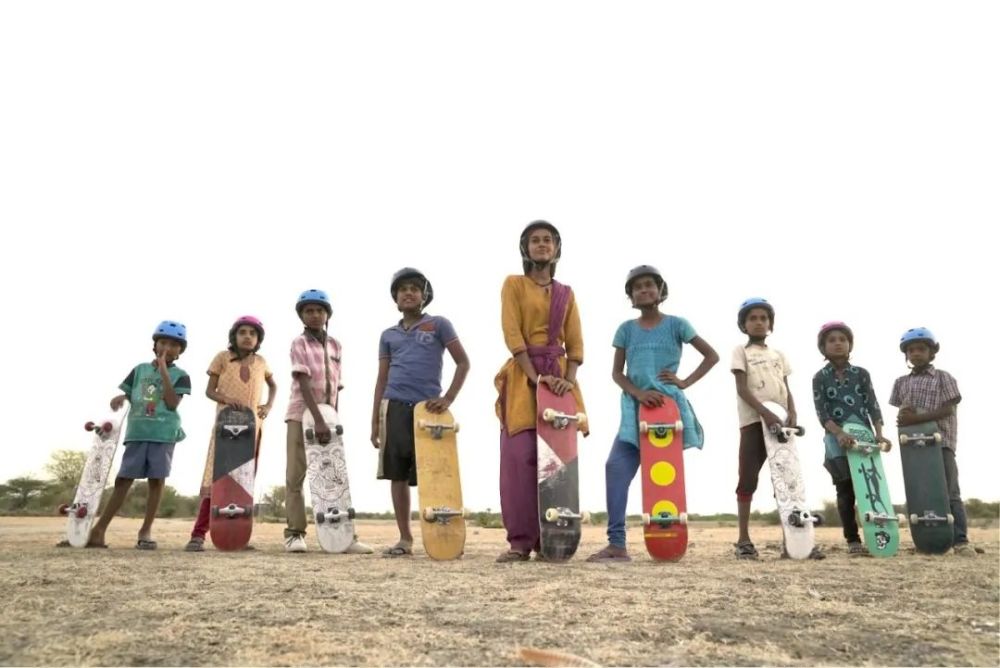
Or to assist the main line to three-dimensionally transform the heroine’s love line, family love line and friendship line, etc., the film can at least be successful in narrative.
The film “Skater Girl” contains the above-mentioned elements, and also involves issues such as patriarchy and male power in Indian society, group pressure, and social class in the caste system.
However, the root of the problem lies in the fact that it only “contains” these elements, or even the collage of elements.
It did not deconstruct it in the film structure, so it became an unfulfilled “want”.
The inclusion of this kind of industrial assembly first made the main line of “Skater Girl” blurred.
Even the middle section lost the main line, which appeared to be a bit fragmented.
After watching “Skater Girl”, you will find that Prerna started contacting skateboarding because of another Indian girl from London, Jessica.
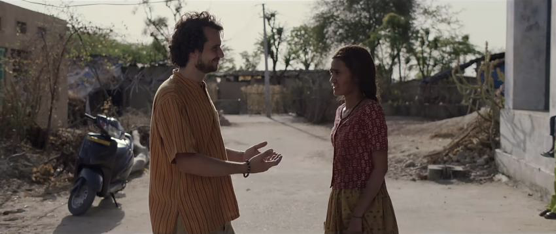
And Prerna really started to skateboard because the friends of Indian girls brought skateboarding into the lives of these children.
Thus, the middle section of “Skater Girl” begins to tell the story of Jessica and her friends.
Including why the two sides came here, how to face the resistance of the villagers to skateboarding, and how to overcome social pressure to build a skateboard park.
This overwhelmed the original individual story about skateboarding, and the main line of Prerna’s personal choice wandering back and forth between persistence and abandonment became broken.
However, there is also an assumption that the film just wanted to focus on telling how external interveners helped the children in this village, changing the village’s view of skateboarding.
Under this assumption, it’s just that the name “Skater Girl” is not appropriate.
However, the personal redemption of the skater girl Prerna at the end of the film breaks this assumption.
At the end of “Skater Girl”, Prerna finally overcame self-fear at the wedding and ran to the skateboarding competition site and successfully completed the narrative line of the skateboard bowl.
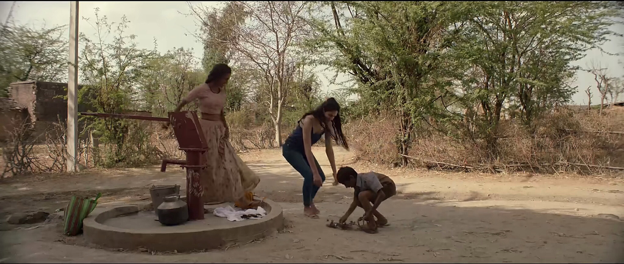
If the front line breaks, it will make the ending climax present a kind of suspicion just to win the viewer’s emotions.
Because this kind of emotion is only a temporary sensation brought about by the short plot, and it does not form a unity and continuation with the previous narrative.
This kind of treatment makes the narrative line of “Skater Girl” unclear.
The main and branch lines are mixed together, and the plot is not clear enough without the distinction between primary and secondary.
For example, if Jessica from London can be counted as the second female.
The role of the character is to connect the heroine Prerna and the skateboard, becoming a spiritual guide for Prerna to insist on skateboarding and the presentation of female friendship.
So it should be a branch line that serves the main line of narrative.
But the middle part of Prerna was “absent” due to being banned by the family.

“Skater Girl” shifted the narrative focus to why the second girl came here, how to build a skate park, and even train other children participating in the competition with friends when Prerna was preparing for the wedding.
The connection between Jessica and Prerna is constantly interrupted, and occasionally this branch will overhang the main line, which will make the audience hesitate about the focus of “Skater Girl”.
Another example is the love line between Prerna and male classmates designed by “Skater Girl”.
This line of love is buried and foreshadowed in front of the film, but it does not have much effect on the advancement of the storyline, the transition of the character’s psychology, or the design of the film’s ending.
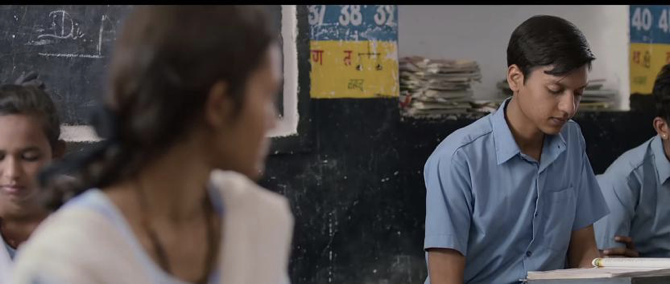
So when the male student suddenly “confessed” to Prerna, this line of emotion will be slightly mechanical and rigid.
The mechanics and rigidity of “Skater Girl” are not only there.
Individual characters in “Skater Girl” also lack character arcs, which means that the character design is rigid and flat.
“Skater Girl” is defined as feminism.
Therefore, Prerna, who persists and sometimes compromises in various shackles, is arranged.
Jessica, who occasionally guides the female lead to overcome fear and pursue freedom.
And the wife of the state owner who played a key role in the construction of the skate park.
This kind of role arrangement really wants to illustrate the power of women in the process of change in the whole story.
But “Skater Girl” does not show the personal growth of women, especially the heroine.
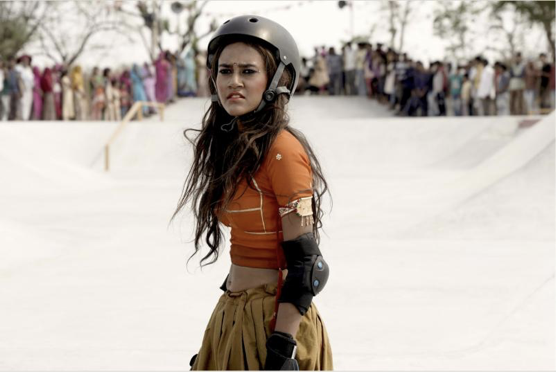
What kept stimulating her to make the final decision, the film was not well laid out in the first half of the film.
The opposite is the patriarchy represented by the heroine’s father. The teacher led the villagers to oppose the patriarchy of skateboarding and group pressure.
Leaving aside the rigidity of the existence of a single opposition, the villagers gathered together to watch a skateboarding game and applauded for it.
The father also accidentally saw the daughter who was skating and did not hinder him.
In the first half, there was no change in the attitude of the characters, and even the people from all walks of life took decisive opposition.
Can everyone get together to watch a skateboarding game in a dramatic way, or if they have not finished watching a game, can they easily change the self-attitude that has been formed in the long-term environment?
Losing the logical connection will make the film narrative become mechanical and modular, presenting a state of random splicing of various modules and elements.
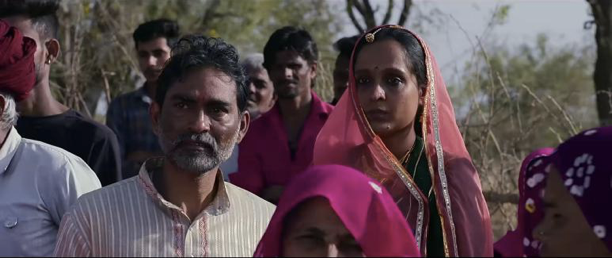
The practice of “want to have everything” may often be the result of “nothing”.
In other words, “Skater Girl” is constantly doing additions, but forgot how to choose and how to do subtraction.
And this kind of mechanical collage of foreign elements and other issues in the self-perspective.
In fact, it is a simple translation of my own stereotypes of foreign cultures from the perspective of the West.
Once again solidify the self’s stereotype of the other, immersed in the Western style of self-movement.
The lack of historical context and the incomprehension of other cultures, and bringing this incomprehension into “Skater Girl” will make the film look dull and rigid.
In the end, neither the growth of individual rebellion or accusation nor the power of social reflection is lost, showing a state of struggle and powerlessness.
In this case, the temperament and acting skills of the actors will be relatively wasteful, and the emotional healing given to the viewers by the local children cannot be more powerfully displayed.
Another significance of “Skater Girl” may be that the skate park built for filming remained in Rajasthan and became one of the largest skate parks in India.
